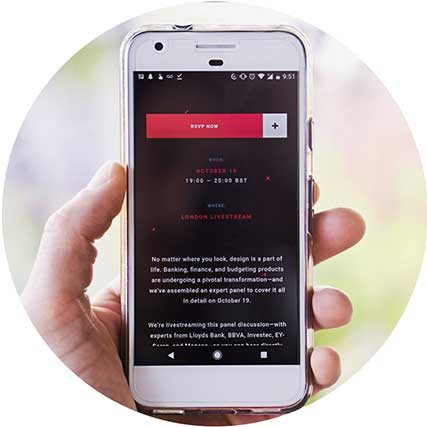How you may be approached
Whether you’re approached online or by someone you know, if it sounds too good to be true, it probably is.

Online
The Internet provides scam artists with an easy and extremely compelling way to get in front of their targets. There are numerous online binary options trading platforms that target investors through enticing online advertising. Investors will click through to a sophisticated-looking website where they can easily open an account and start trading with as little as $250. These websites promote their trading as a simple way to make easy money with returns as high as 80 per cent.
Someone you know
A friend or an acquaintance may tell you that binary options trading is on easy way to make money. No matter how much you trust that person, it’s important to remember to take the time to do independent research before you invest.


Cold calls
You receive a call from a stranger about an amazing investment opportunity involving binary options. This caller may be calling from a makeshift office (boiler room), where they “cold call” investors about an investment opportunity that sounds probable. These cold callers may falsify information, try to pressure you to invest or attempt to defraud you.
Remember
When you first start trading binary options, it may look like your trading account has hit the jackpot. However, these funds won’t be transferred to your bank account and when you try to withdraw the funds, the company may say you have had a bad day and lost your money or will not return your calls.
Online advertisements promoting binary options platforms may be similar to one of the ads below.
Remember, if it sounds too good to be true, it is.
A video overview
While binary options may seem like a simple way to make money, the only simple thing is this advice: stay far, far away. Hit play and watch our video overview for more information about the dangers of binary options.
Binary options red flags
Think a website is selling binary options? Even though the site may look very professional and legitimate, it may be a scam. Pay close attention and be on the lookout for these red flags:
- The company/person is not registered with the ASC or another Canadian regulator. You can check if they are registered on our Check Registration page.
- The company description is vague with no information about the management team.
- Besides its website, there is no searchable information on the company.
- There are grammar and spelling mistakes.
- The contact information is not accurate. For example, the company may list offices in New York, but when you do a search or try to call, the company is not found.
- The company is located overseas.
Do not become a statistic. Simply put, don’t invest in binary options trading.
Watch out for recovery room scams
Con artists prey on desperation and anxiety.
If you become a victim of a binary options scam, you may be contacted by another scam artist who says they can recover the money you lost. They will tell you that you lust have to pay taxes or a fee to recover your money. This recovery room scheme is another scam (also known as a boiler room scheme) and, once again, you will have lost your money. Scam artists sell the personal information of victims so they can be targeted again by a new fraudster.
Take action
- Contact the ASC – we’re here to help: inquiries@asc.ca or 1-877-355-4488.
- Tell a close friend, family member, or someone you trust – this should not be kept a secret.
- Cancel your credit cards and close related financial accounts that may be at risk.
- If you provided the company with your passport information, contact the Canadian government.







